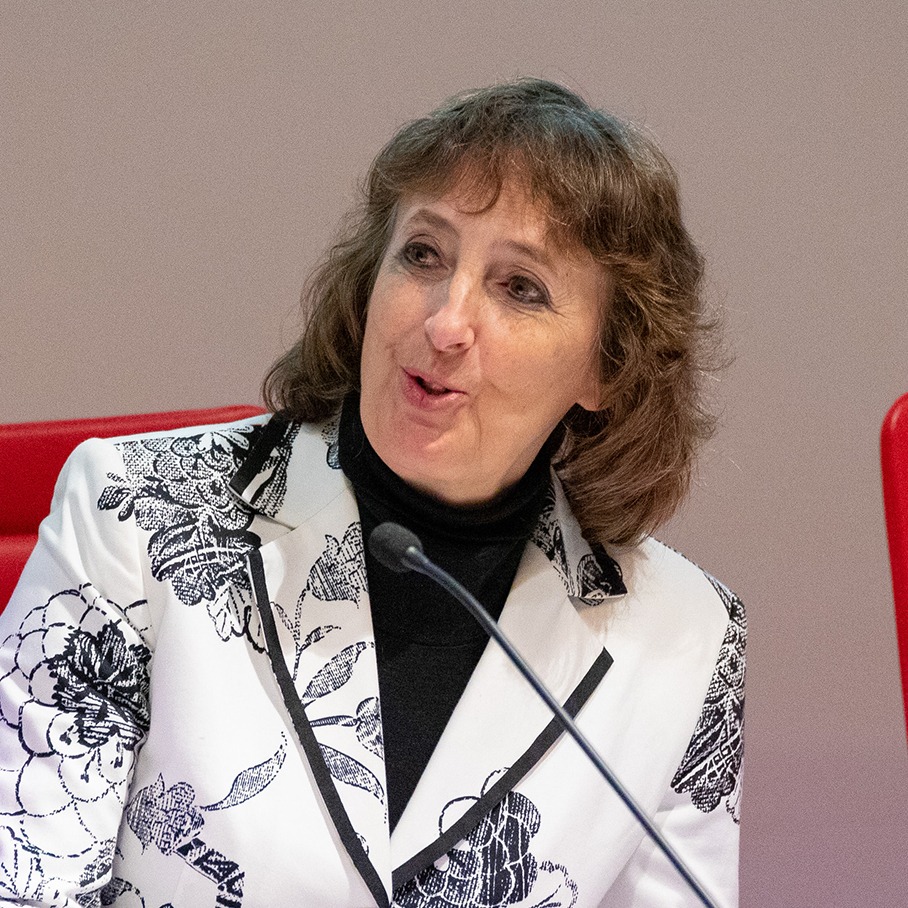Nutritional Management of the Competitive Equine Athlete
Species
Equine
Contact Hours
3 Hours
Early Booking Deadline
Thu, 01 January, 1970
Registration Deadline
Thu, 01 January, 1970
Language
English
Discipline
Internal Medicine – Endocrinology, Haematology, Infectious Diseases, Parasitology & Oncology
Nutrition
Sports Medicine
Industry Partners
Global

Veterinary Partners
Global


Recorded on: 17th August 2021
Panelists:
Emmanuelle van Erck DVM, PhD, DECEIM - Equine Sports Medicine Practice, Belgium
Ruth Bishop Senior Equine Nutritionist - Premier Nutrition, UK
Stephen Duren M.S, PAS, PhD - Performance Horse Nutrition, USA
Moderator:
Pat Harris MA, PhD, DECVCN, VetMB, MRCVS - Waltham Petcare Science Institute & Mars Equestrian, UK
CONTENT DESCRIPTION
Although nutrition cannot improve the intrinsic ability of a horse (or rider), poor or inappropriate nutrition can impose limitations on performance. Optimal nutritional management that supports the health, performance and behaviour of the competitive equine athlete, thereby enabling him to compete successfully long-term, is therefore essential. Providing optimal nutrition during training, transportation and at competition, as well as during recovery, is an active process that requires constant monitoring and amendment to ensure that the diet and the feeding programme match the changing circumstances and requirements. Adjustments in accordance to current or potential health risks need to be considered and all involved have to be aware of relevant regulations governing their sport relating to prohibited substances in feeds and forages. This panel discussion brings together internationally recognised sports medicine specialists and equine nutritionists to discuss key aspects around optimal practical nutritional management during training, transportation and competition as well as how to help minimise the risks of a positive feed/forage-associated dope test.
The following main topics will be discussed:
- Core feeding during training and competition
- Feeding before during and after transportation nationally and internationally
- Key general and specific (including supplements) nutritional recommendations for reducing the risk of/managing the equine athlete with health issues
- Managing the prohibited substance risk
Emmanuelle van Erck graduated in 1996 from the French Veterinary School of Maisons-Alfort. She trained in sports medicine at the University of Liège (Belgium) where she obtained her PhD on respiratory function testing in horses. She developped the equine sports medicine unit and consulted as senior clinician in the CIRALE in Normandy (France). In January 2010, she started her own ambulatory referral practice, the ‘Equine Sports Medicine Practice’, based in Belgium. Her practice offers specialized service in equine internal and sports medicine throughout Europe, following national teams and international riders.
Emmanuelle van Erck authored over 50 peer-reviewed scientific articles and regularly lectures at international conferences. She is a member of the FEI expert committee on prohibited substances and doping.
After qualifying from Cambridge University, Pat completed her Ph.D. at the Animal Health Trust into the Equine Rhabdomyolysis Syndrome. She joined the Waltham Centre for Pet Nutrition (now Waltham Petcare Science Institute) in 1995. As Director of Science for Mars Horsecare and head of the WALTHAM™ Equine Studies Group, she is responsible for their equine research conducted in collaboration with experts at institutes and universities globally. This provides the science behind the SPILLERS™, BUCKEYE™ Nutrition, and WINERGY™ brands. She is also a scientific advisor to MARS EQUESTRIAN™.
Pat is a European Specialist in Veterinary Clinical and Comparative Nutrition, an RCVS recognized specialist in veterinary clinical nutrition (equine), and a British Equine Veterinary Association Past-President. She is also a member of several international society and charity boards and holds, or has held, a number of academic posts within various institutions around the world.
Pat lectures internationally on nutrition as it affects the health, welfare, behaviour, and performance of the horse. She is the author or co-author of over 500 scientific papers, abstracts, and book chapters with recent emphasis on obesity, laminitis, and senior horse nutrition. She was the co-editor for the 2021 Veterinary Clinics of North America Equine Practice on Equine Nutrition and co-authored two chapters including one on ‘What would be good for all veterinarians to know about Equine nutrition'.
Since graduating from Nottingham University with an Animal Science Degree, and University College Dublin Vet School, with a Postgraduate Diploma in Equine Science , Ruth has worked in commercial nutrition roles varying from consulting, equine feed manufacture, and currently works for Premier Nutrition, a United Kingdom-based premix provider. As such Ruth has wide experience of diet and feed formulation, and also the factors that impact the quality of the feedstuffs that horses eat. Her interest in performance horse nutrition focuses on helping ensure that performance horse diets supply the nutrients and ingredients required, whilst minimising the risk of undesirable contaminants. Ruth has worked with the British Equestrian Team for several years as part of the team providing advice on feeding and nutrition to the squads.
Stephen Duren, PhD, MS, PAS, completed his Bachelor of Science in animal sciences at the University of Idaho. He earned a Master of Science and a Doctor of Philosophy in equine nutrition and exercise physiology from the University of Kentucky. His research focus centered around feeding fat to racehorses and changes in blood flow distribution in fed and fasted horses during exercise.
Duren has now formed Performance Horse Nutrition, LLC, where he consults with feed manufacturers and horse owners throughout the world. Duren has owned horses his entire life and truly understands the connection between diet and performance. He has owned competitive horses and understands the investment of time and training and realizes that diet should be a factor that helps the horse, not limits the horse.
Veterinary Student
Online Panel Discussion
USD 35.00
Qualified Vet
Online Panel Discussion
USD 85.00
Intern/Resident (Requires proof of status)
Online Panel Discussion
USD 65.00
Vet Nurse/Vet Tech (Requires proof of status)
Online Panel Discussion
USD 65.00
If the options you are looking for are unavailable, please contact us.
No tax will be added unless you are a UK taxpayer
Choose currency at checkout


















